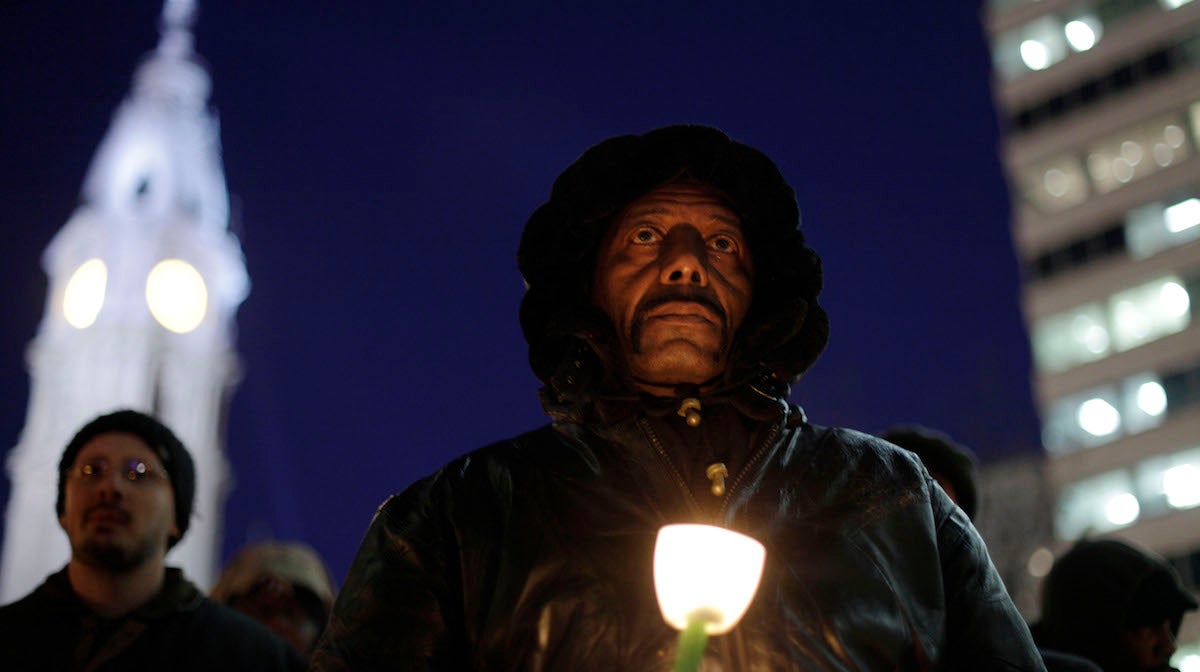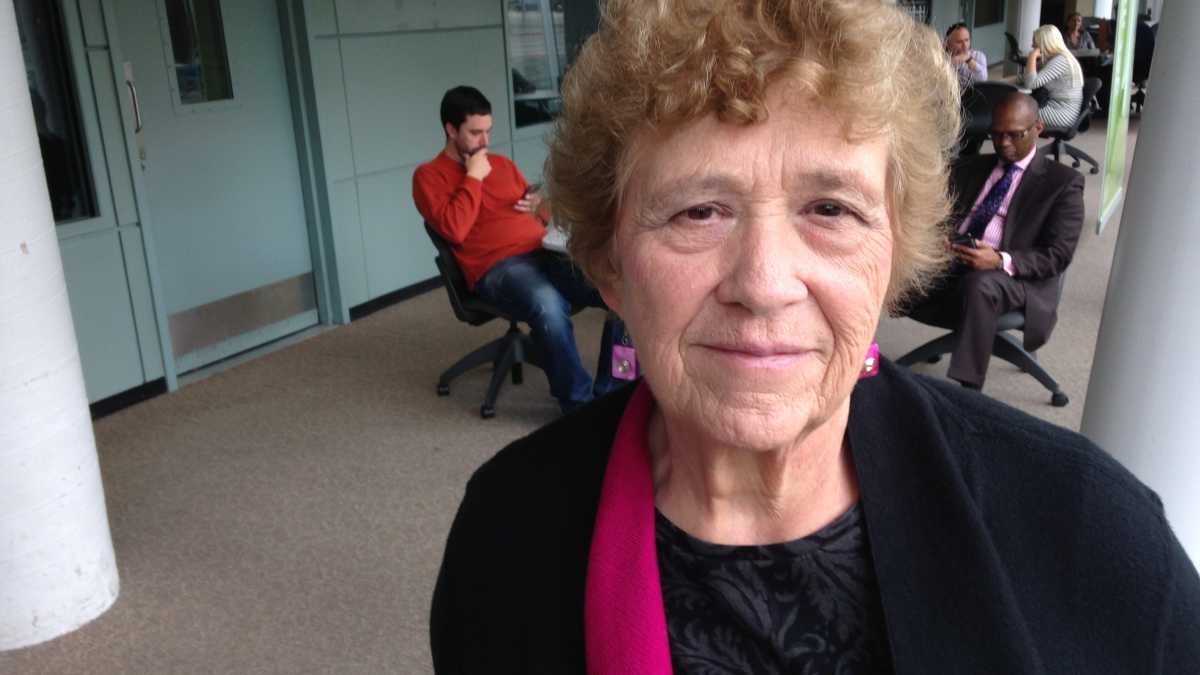Homeless veterans are finding their way off the streets with help from city, federal programs
Listen
Larry Bailey, a formerly homeless veteran now living in transitional housing, gathers with others to remember the homeless and formerly homeless Philadelphians who died in the past year, at John F. Kennedy Plaza, also known as Love Park, in Philadelphia, Tuesday, Dec. 21, 2010. This annual remembrance was held on the winter solstice, the longest night of the year. (AP Photo/Matt Rourke)
Federal, state, and city governments around the country are vowing to end the epidemic of homelessness among veterans. In 2013, the city of Philadelphia pledged to reach by Veterans Day — today — what’s called “functional zero” for the number of veterans living on the street.
Since then, more than 800 have found housing and more than 500 others have the resources to find and maintain a home, a situation that according to Marie Nahikian, the Director of Supportive Housing for the city, could befall anyone.

Marie Nahikian, Director of Supportive Housing for Philadelphia, feels that leadership from the city has helped get more than 1,000 veterans off of the streets. (Jennifer Lynn/WHYY)
“Paying for one funeral, having one horrible situation of domestic violence, having your hours cut from 40 hours a week to 20 hours a week, there but for any of us, we would be homeless,” Nahikian said. “People live from moment to moment and paycheck to paycheck. People don’t have those type of resources to back up their crisis.”
When a veteran returns home from service, their situation can be balancing act and one bad move or health issue can change everything. Nahikian, who stressed that every homeless vet’s story is different, says that there are currently 24 homeless vets currently on Philadelphia streets and some are unable to find a home due to issues such as mental health problems of substance abuse.
“I have one vet that I talk to regularly,” she said, at times getting emotional recounting stories of dealing with veterans. “He says to me ‘you know, I really like you, but I got myself out here and I gotta get myself off of here.’ And I tell him that it’s all right to let someone help you. He, on some level takes responsibility for whatever choices he’s made in his life that’s left him where he is, and he feels very strongly about taking responsibiltiy for changing that and that’s hard.”
To hear more of Jennifer Lynn’s interview with Marie Nahikian, including a description of what “Functional Zero” is, press the play button at the top of the screen.
WHYY is your source for fact-based, in-depth journalism and information. As a nonprofit organization, we rely on financial support from readers like you. Please give today.





